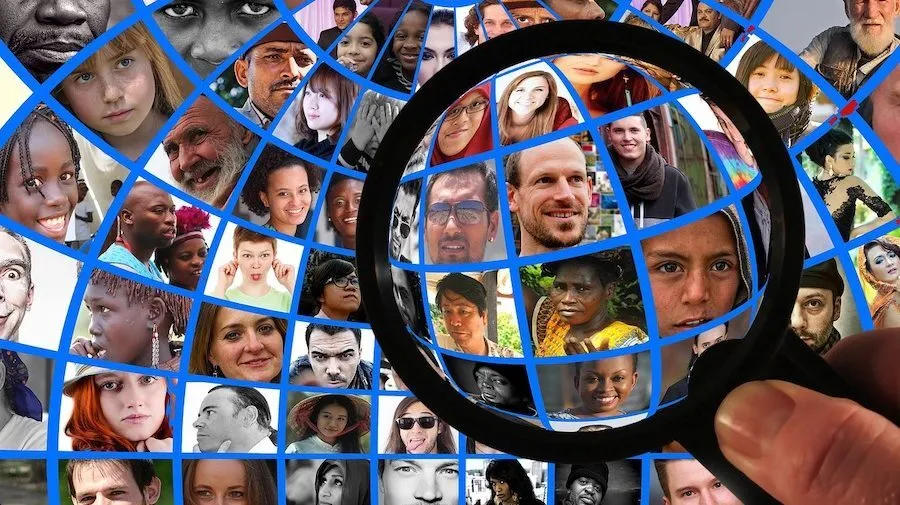In today’s interconnected world, human rights research tools play a crucial role in monitoring, analyzing, and advocating for human rights. These tools offer various benefits, including improved data accuracy and enhanced collaboration among stakeholders. However, they also come with challenges, such as issues related to data accessibility and ethical considerations.
This exploration delves into both the advantages and the obstacles faced by researchers and organizations in the realm of human rights, highlighting the importance of these tools in the ongoing fight for justice and equality.
Types of human rights research tools
When exploring types of human rights research tools, it’s essential to recognize the diverse methods and sources available for data collection and analysis. These tools range from primary data sources, such as reports from international organizations, to secondary sources like academic studies and community-driven data. Each type plays a critical role in providing a comprehensive understanding of human rights issues, facilitating informed decision-making and advocacy efforts.
Primary data sources
These are direct pieces of information gathered from organizations like the United Nations, Amnesty International, and Human Rights Watch. Such organizations conduct investigations and research to provide detailed reports on human rights situations in various countries. Primary data tends to be highly reliable as it is collected by experts and reputable organizations, helping users gain a clearer understanding of current and historical human rights issues.
Secondary data sources
These include documents, reports, and analyses compiled by other organizations. They encompass academic articles, NGO reports, and analyses from researchers. Secondary data sources are valuable in clarifying human rights issues, as they offer insights from multiple perspectives and help users better comprehend the global human rights context and trends.

Community data
With the advancement of technology, collecting data from the community has become easier through crowdsourcing platforms. Tools like HuriSearch enable citizens and small organizations to share information about observed human rights violations.
This not only enriches the data pool but also encourages community involvement in monitoring and reporting human rights issues. Community data can provide a more vivid and real-time perspective on actual situations, although its reliability may vary based on the source and the information gathered.
Overall, each type of data source plays a crucial role in constructing a comprehensive picture of human rights situations, thereby assisting organizations, researchers, and governments in making informed and effective decisions to protect human rights.
Benefits of using human rights research tools
Utilizing human rights research tools offers numerous significant advantages, especially in a complex global context regarding human rights issues.
Improved data accuracy
Research tools facilitate the collection, analysis, and verification of information from diverse sources, resulting in more reliable data. This enables researchers and human rights organizations to gain deeper insights into real situations, minimizing the risk of misinformation or bias.
Support for more accurate decision-making
Accurate and systematic data allows organizations and governments to make better decisions in protecting human rights. Understanding current situations and trends in human rights violations helps shape appropriate policies and strategies.
Facilitation of collaboration
Research tools not only provide information but also promote cooperation among stakeholders, including governments, NGOs, and communities. Sharing data and information enhances the effectiveness of monitoring and protecting human rights while encouraging coordinated efforts in human rights campaigns.
Increased awareness and education
Utilizing research tools helps raise awareness about human rights issues within communities. Published reports and data can educate the public about human rights violations and call for action from individuals and organizations.
Enhanced monitoring and reporting capability
Human rights research tools provide methods and means for monitoring human rights violations. Continuous and systematic tracking allows human rights organizations to respond more effectively and promptly to violations.
In summary, using human rights research tools not only enhances data quality but also creates valuable collaboration opportunities in protecting human rights globally. The combination of technology and research can establish a robust information network that supports efforts to safeguard human rights.

Future trends in human rights research tools
The future of human rights research tools is poised for significant transformation, largely driven by advancements in technology such as artificial intelligence (AI) and big data. These technologies will enhance the ability to collect and analyze human rights data more efficiently and accurately.
Enhanced data collection and analysis
AI can automate the process of data gathering from various sources, including social media, news articles, and reports. This capability allows for real-time monitoring of human rights situations, making it easier to identify trends and patterns that may indicate violations.
Predictive analytics
With the integration of big data analytics, organizations can utilize historical data to forecast potential human rights violations. By identifying risk factors and trends, stakeholders can proactively intervene to prevent abuses before they occur.
Improved collaboration
Partnerships between technology companies and human rights organizations will likely grow, fostering innovation in data collection and analysis methods. Collaborative platforms could emerge, allowing for shared access to data and resources, thereby strengthening the overall impact of human rights initiatives.

Increased accessibility
As technology evolves, access to human rights research tools is likely to expand, empowering more individuals and organizations to engage in human rights advocacy. Online platforms can facilitate training and education, equipping more people with the skills needed to utilize these tools effectively.
Ethical considerations
As reliance on AI and big data grows, ethical concerns surrounding data privacy, consent, and accuracy will also become increasingly important. Organizations must navigate these challenges carefully to maintain the integrity of their research and the trust of the communities they serve.
In conclusion, the integration of advanced technologies into human rights research tools is expected to significantly enhance the ability to monitor and protect human rights. These advancements will create new opportunities for collaboration and engagement, ultimately leading to more effective advocacy efforts worldwide.
Human rights research tools are essential for promoting accountability and protecting human rights globally. To maximize their effectiveness, close collaboration between organizations and governments is crucial for collecting and sharing data. This cooperation ensures a comprehensive understanding of human rights issues, enabling timely interventions and informed policy-making. By leveraging these tools collectively, stakeholders can work towards a more just and equitable world where human rights are upheld and defended.


